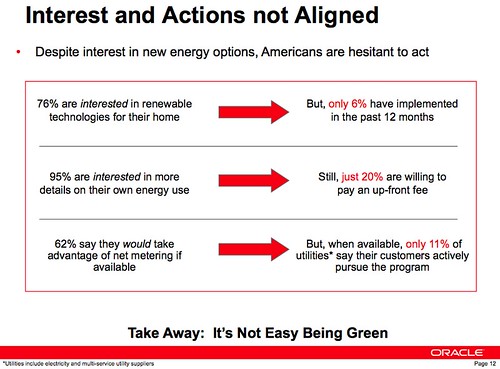I decided to run a series of interviews with people deeply involved in the Smart Grid space. I’m calling it the Smart Grid Heavy Hitters series. I will publish a new interview every Thursday until I run out of interviewees (or out of energy – poor pun intended, sorry!).
In this, the first of my Smart Grid Heavy Hitters’ interviews, I talk to Oracle’s VP of Industry Strategy, Guerry Waters.
It was a great interview – in it we talked about:
- Oracle’s vision of a successful Smart Grid
- The benefits of Smart Grids
- The requirements for a successful Smart Grid rollout
- The impacts of regulations on Smart Grid rollouts
- Examples of Smart Grids and
- Oracle’s place in the Smart Grid ecosystem
I’d like to thanks Guerry and Oracle for being such willing participants in this project and Ludovic Leforestier for helping make this interview happen!.



